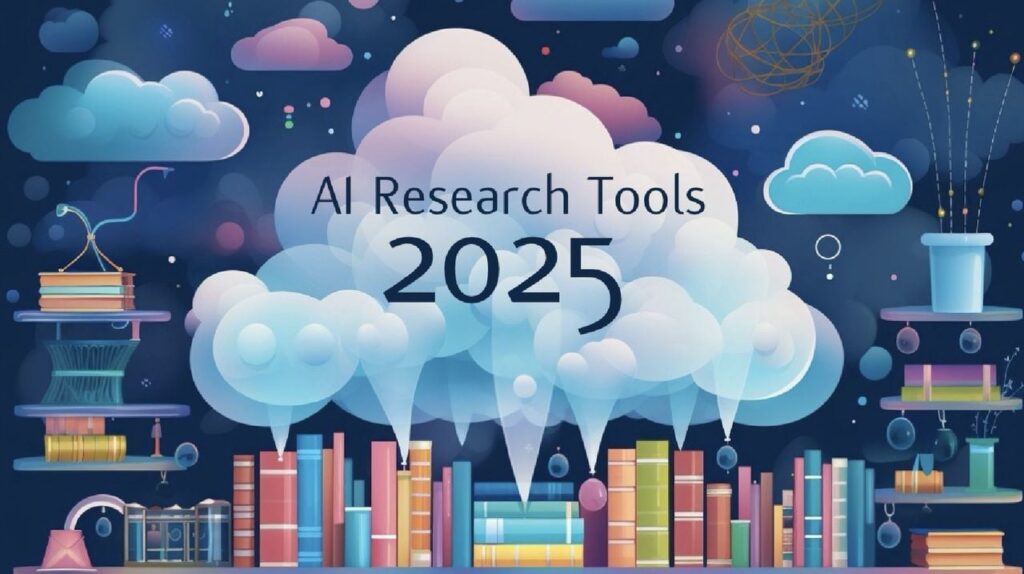Research has dramatically evolved with the advent of AI tools for researchers, transforming academic inquiry and study methodologies. These cutting-edge technologies not only streamline the research process but also enhance the quality of outputs by providing personalized insights and data analysis. Moreover, according to recent studies, more than 75% of researchers believe that integrating AI dramatically improves productivity. Tools like Elicit and Consensus are becoming increasingly popular in the budgeting and planning phases of research projects, allowing academia to leverage their expansive datasets effectively. For more insights, you can explore the AI Tools for Research guide by Georgetown University.
Enhancing Literature Reviews with AI Tools
The traditional literature review process can be time-consuming, often consuming weeks of a researcher’s time. With AI tools like Elicit and Scholarcy, the literature review process becomes more efficient and manageable. Elicit helps researchers summarize studies, extract key data, and even formulate questions based on the literature available. Scholarcy aids in automating summarization, creating flashcards from papers, and organizing research via interactive tools, which can significantly enhance understanding. Furthermore, utilizing AI for automated referrals can lead researchers to sources they might not have discovered otherwise, thereby broadening their data scope.
AI and Data Analysis: Empowering Academic Insights
Data analysis forms a backbone of academic research, and AI tools like Semantic Scholar and Scite are making this process smoother and more insightful. Semantic Scholar employs advanced AI to analyze vast databases of research papers, helping users quickly find relevant literature. Scite not only identifies relevant papers but also indicates how they are cited in other work, offering insight into the impact of research. Utilizing these tools can vastly reduce the time spent searching for pertinent information, thus enhancing overall research quality. Check out the functionalities on SciSpace, which consolidates multiple research tools for ease of use.
📊 Key Information about AI Tools
- Efficiency: AI tools can cut research time by over 50%.
- Accuracy: Higher accuracy in data analysis and literature reviews.
Collaboration Tools: AI in Team Research
Collaborative research often involves multiple stakeholders and varying methodologies. AI-based tools like Mendeley and EndNote are designed for researchers working in teams, allowing seamless sharing of references and documents. These platforms facilitate communication and synchronized referencing, significantly enhancing the project workflow. By incorporating AI into these tools, researchers can leverage smart suggestions to save time and ensure consistency in citation formats. Additionally, AI features predict what papers would be most relevant to one’s work, guiding teams toward targeted research outcomes, making collaborative efforts more fruitful.
Future Trends: The Next Phase of AI in Research
The future of AI tools for researchers looks promising with advancements in machine learning and natural language processing. New tools will likely emerge that provide even deeper insights and predictive analytics capabilities. For instance, tools which could analyze not only published papers but also ongoing research trends could revolutionize how researchers formulate their approaches. As the educational landscape adapts, these improvements could lead to faster hypothesis testing and more accurate data analysis. Keeping an eye on emerging trends via authoritative platforms like Nature can be beneficial for researchers looking to stay ahead.
Key Takeaways and Final Thoughts
In essence, the integration of AI tools for researchers has reshaped the landscape of academic research. The amalgamation of speed, accuracy, and collaboration marks a significant step forward in enhancing research outputs. Staying updated on innovations in AI will empower researchers while aiding them in navigating their fields more effectively. To delve deeper into the intersection of AI and academic productivity, check the Reddit discussion on the best AI tools for research.
❓ Frequently Asked Questions
What is the main benefit of using AI tools in research?
The main benefit is increased efficiency. AI tools can automate aspects of research, drastically reducing the time spent on tasks like literature reviews and data analysis, allowing researchers to focus on critical thinking and creativity.
Are there any downsides to using AI tools?
While AI tools can enhance efficiency, they may also lead to over-reliance. Researchers must ensure they critically assess AI-sourced information to maintain integrity and accuracy in their work.
To deepen this topic, check our detailed analyses on Gadgets & Devices section







